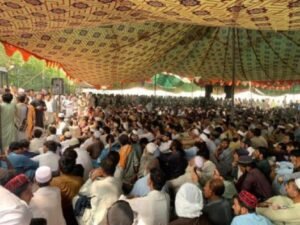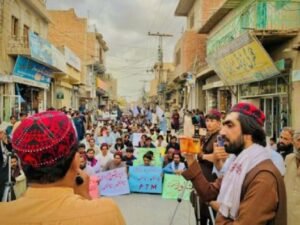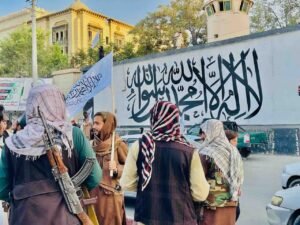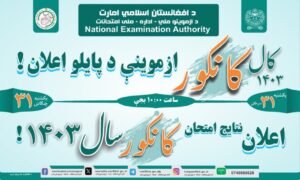Seeking Lasting Peace and Human Security in a Neutral Afghanistan: Addressing Myths, Challenges, and Solutions
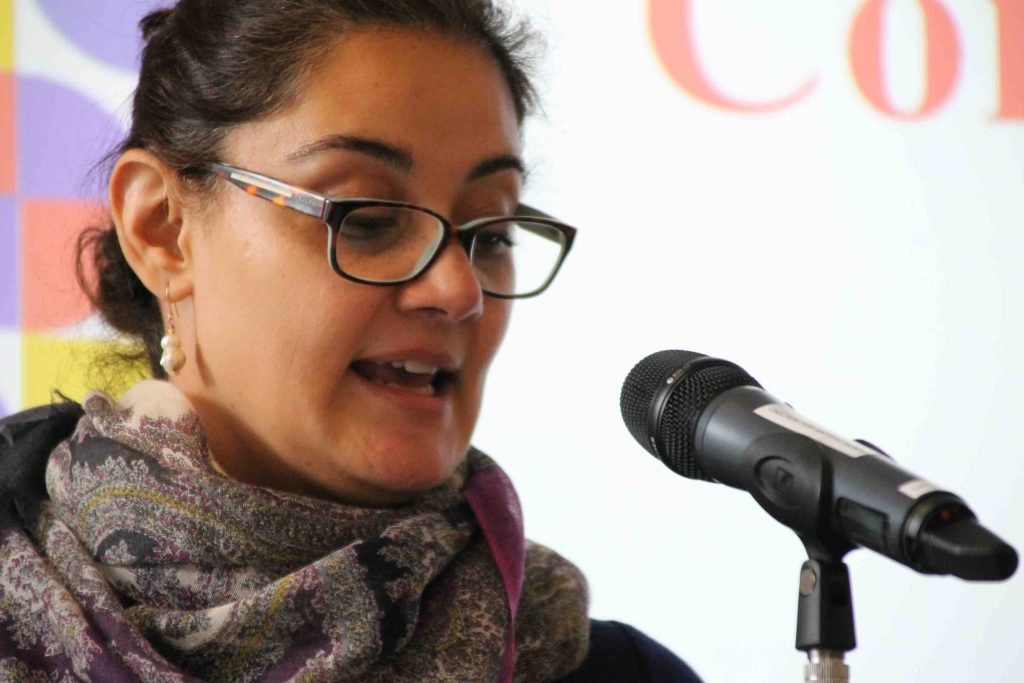
Afghan Peace and Reconciliation Researcher, Heela Najibullah Photo: © Mikael Nielsen
Afghan peace and reconciliation researcher, Heela Najibullah, delivered the following speech as a keynote speaker during the conference “Two years after the takeover: Challenges and ways forward” on the 30th of July in Copenhagen, Denmark. The conference was organized by Danish Afghan Women Diaspora Forum (DAKDIF).
Dear friends, Danish friends, and members of humanity, good morning to you all. I sincerely appreciate your presence here, and I would like to extend my gratitude to our friends Tahmina Jan and DAKDIF, Zohreh Jan, for enabling us to gather and amplify our voices. Initially, I had prepared a speech for today, but following Mr. Bennett’s conversation, I find myself contemplating how much I may need to adapt my speech. Nonetheless, I will proceed with my prepared speech and endeavor to address some of the questions you have raised.
On the 15th of August 2021, a dark day unfolded as a proxy armed extremist group seized power in Kabul. On this day, Afghans lost their hope for a future where durable peace can determine their human security. We lost our aspirations for an independent Afghanistan where we can exercise our individual rights in the social, political, and economic spheres. The de facto government’s sudden arrival brought not only uncertainty, fear, and volatility, but also revealed the absence of the rule of law and governance. This event gave rise to various myths, such as i) Afghanistan being a safe and peaceful country, ii) the notion that Afghan culture restricts women from education and participation in society. iii) Another myth suggests that Afghanistan poses no threat to global peace and security from its geography.
Allow me to debunk these myths. Afghanistan is neither safe nor at peace because it lacks a formal government or an established governance structure. The absolute dearth of law creates insecurity and chaos, impacting not only Afghan citizens but also the region and the world as a whole. It is essential to recognize that the implementation of Sharia law by the current regime is based on their interpretation, not necessarily reflective of the true principles of Sharia. The absence of a proper governance system is a significant concern that affects the stability and security of the entire region. Regarding the Doha agreement, one of the four points emphasized by Mr. Khalilzad was the reduction in violence. Reduction in violence has been met because the terror group that waged wars and violence now has grabbed power by force.
Afghanistan is not in peace or safe, with 20 million citizens experiencing food insecurity, and six million people living in famine-like conditions according to the World Food Program (WFP). In the two years of Taliban de facto rule, the absence of the rule of law has led to a rise in extremism, evident in the proliferation of madrassas, training of suicide bombers, and alterations in the educational curriculum.
Moreover, the alarming elimination of women has raised concerns about Afghan culture’s role in denying women education. However, it is crucial to note that Afghanistan’s 1921 constitution empowered women long before many other regional countries. The mentality behind the Taliban’s approach to eliminating women’s role in the society must be critically examined. Such actions perpetuate ignorance and hinder the progress of society, and the consequences it brings both within Afghanistan and globally.
The book “Sex and the World Peace” highlights an essential point: states willing to wage war over oil and scarce resources, will do so in societies that have norms of gender inequality. Therefore, the foreseen fault lines between civilizations would be between states that treat women equally and those states that have their norms embedded in gender inequality. This underlying gender inequality exacerbates human insecurity in Afghanistan.
I must emphasize that true peace remains elusive when the Taliban leadership announces amnesty, yet disappearances and arbitrary arrests continue in an environment of fear and suppression for Afghans. The past two years have been a nightmare for Afghanistan, and it is imperative to bring an end to this situation for the sake of regional and global stability, as well as the security of its citizens.
The Taliban cannot be regarded as a political force, as they have consistently rejected the idea of a political settlement through the peace process. Instead, they have chosen to reveal their true face of terror by forcibly seizing power. To foster lasting peace, a comprehensive and inclusive approach is required, one that addresses the concerns and aspirations of all Afghan people.
The geopolitics of Afghanistan have positioned it as a litmus test for regional and global stakeholders to demonstrate their capacity for cooperation in pursuing peace and security. To find solutions for Afghanistan, we must think creatively and beyond conventional approaches. The international community faces a crucial choice between engaging and legitimizing radical proxy groups or establishing a mechanism for national and international consensus.
In the pursuit of lasting peace, at national discourse, it is essential to include not only the Taliban and Mujahideen with warlords but also a third front that represents the authentic voices of Afghanistan. This third front can succeed by being present in an inclusive dialogue with all stakeholders on vital issues such as national elections, transitional justice, disarmament, and equal rights for all citizens within a neutral Afghanistan. Meanwhile, regional and global stakeholdersof Afghanistan can reach a consensus for the stability, security and economic growth in the region that Afghanistan existsas a sovereign nation and a neutral state. For this purpose, I recommend the following steps:
Engaging with the Taliban does not equate to accepting their rule. Instead, it involves exploring and establishing mechanisms that foster open discussions centered around the rights of Afghan citizens. This includes safeguarding our political rights, such as the right to participate in elections, economic rights for our development and growth, and social rights. For instance, Mr. Bennett mentioned that the Taliban discarded the 2004 constitution while claiming to implement the Zahir Shah constitution. However, under the Zahir Shah constitution, there is no room for democracy, as they prohibit political activities and the existence of political parties.
Our national interest, regional, and global security demand that Afghanistan declares itself a neutral state, leading to consensus among regional and international political stakeholders under the United Nations’ umbrella. This neutral status can succeed when, at the national level, a political system is created to conduct elections, promote equal rights, ensure food security, and foster economic growth.
Afghanistan’s national interest and international security are directly linked to debunking the jihad narrative introduced during the Cold War. This same narrative persists, radicalizing Afghan children, particularly since the Taliban’s arrival two years ago.
The recruitment of Afghan youth for unknown wars is at its peak, and Afghanistan’s national interest is closely linked to global human security. This includes access to education, healthcare, equal rights for citizens, and food security, as I mentioned earlier. The current poverty and the rule of the Taliban pose the greatest danger to Afghanistan and the region. It perpetuates conditions for radicalization and the exploitation of vulnerable groups, especially women and children. Therefore, guaranteeing durable peace in Afghanistan requires two parallel processes: one at the national level and the other at the international level. Both must work simultaneously to reach a consensus on the country’s political future, ensuring stability in the region and global security.
Thank you very much.
Note: The contents of the speech are of sole responsibility of the author. Afghan Diaspora Network will not be responsible for any inaccurate or incorrect statement in the articles.

